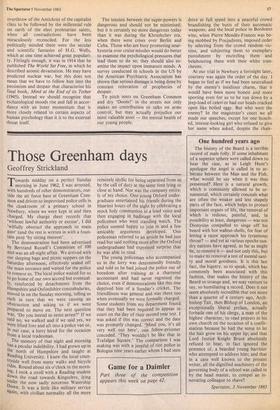One hundred years ago
The history of the Beard is a terrible record of male folly. If some inhabitant of a superior sphere were called down to hear the case, as in Leigh Hunt's apologue the angel is called in to ar- bitrate between the Man and the Fish, what would he say when it was thus presented? Here is a natural growth, which is commonly allowed to be or- namental, which certainly conceals what are often the weaker and less shapely parts of the face, which helps to protect important organs of life, the removal of which is tedious, ,painful, and, in possibility at least, dangerous — was not Dionysius compelled to singe off his beard with hot walnut-shells, for fear of letting a razor approach his tyrannous throat? — and yet at various epochs sun- dry nations have agreed, as far as might be, to remove it — and not only this, but to make its removal a test of mental sani- ty and moral goodness. It is this 'last fact, the bigptry, so to speak, which has commonly been associated with this fashion, that makes the history of the Beard so strange and, we may venture to say, so humiliating a record. Does it not seem absolutely incredible that not more than a quarter of a century ago, Arch- bishop Tait, then Bishop of London, an exceptionally liberal prelate, actually forbade one of his clergy, a man of the highest character, to read prayers in his own church on the occasion of a confir- mation because he had the sense to let the hair grow on his upper lip; and that Lord Justice Knight Bruce absolutely refused to hear, in fact ignored the presence of, a bearded young barrister who attempted to address him; and that in a case well known to the present writer, all the dignified machinery of the governing body of a school was called in by the head master, to compel an in- novating colleague to shave?
Spectator, 3 November 1883














































 Previous page
Previous page